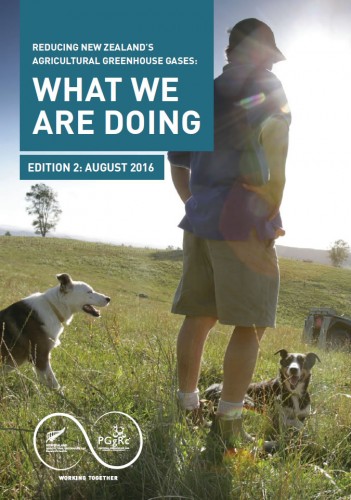GREENHOUSE GASES: WHAT’S NEW ZEALAND DOING?

To help people understand of the complexities around reducing New Zealand’s agricultural greenhouse gas emissions, the Pastoral Greenhouse Gas Research Consortium (PGgRc) and New Zealand Agricultural Greenhouse Gas Research Centre (NZAGRC) have developed a series of fact sheets. Farmers support the work of the PGgRc through their farmer levies.
One of the fact sheets is called “What we are doing – introducing the greenhouse gas mitigation work being undertaken in New Zealand”. It outlines the various approaches being pursued and their estimated delivery timeframes.
Solutions that could be 2-5 years away
Breeding low emitting sheep and cattle: Some animals emit less methane than others and this trait is genetic.
Low methane feeds and feed additives: Certain feeds reduce methane emissions significantly. However, there are flowon effects that need to be worked through.
Low nitrogen feeds and enhanced plant growth at lower nitrogen levels: Short term trials indicate the natural plant hormone, gibberellin, could maintain herbage production, in lieu of nitrogen fertiliser.
Solutions that are at least 5 years away
Methane inhibitors suitable for grazing systems: While inhibitors suitable for feedlot animals are well progressed, the commercial availability of an inhibitor suitable for New Zealand grazing conditions is at least seven years away.
Methane vaccines: New Zealand scientists are working on a vaccine that stimulates the animal to produce antibodies that suppress key methane generating microbes in the rumen of livestock.
The future outlook
If widely adopted of an effective vaccine/inhibitor package could deliver emissions reductions of more than 20% – substantially larger than all the other mitigation options combined.
If successful, such a package will help New Zealand farmers “get ahead”, as opposed to the current situation, where even best practice efforts to reduce emissions intensity are not enough to reduce total emissions from agriculture.
More news articles
